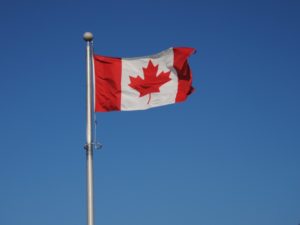As someone who has worked retail on and off for the past eight years between multiple stints in school, I have sold thousands of plastic bags. When I first moved to Victoria almost five years ago, plastic bags were still being used. There was, however—and there still is—growing concern from environmentalists that the use of plastic bags is contributing massively to the destruction and pollution of the oceans (#savetheturtles) as well as contributing to climate change.
Almost two years ago, the City of Victoria banned plastic bags and, seemingly, solved one of the smaller problems that single-use plastic brings with it. As a replacement for plastic bags, the City of Victoria opted for paper bags that are better for the environment, in part due to their higher biodegradability. The city also raised the amount that stores have to charge for bags from five cents to 25 cents. This is all good progress and encourages people to bring their own reusable bags.

Despite this, the BC Court of Appeal overturned the City of Victoria’s bylaw, saying that it was based on environmental concern and therefore was under the jurisdiction of the provincial government and the Ministry of Environment. The City of Victoria is currently in the process of taking the issue to the Supreme Court of Canada.
Even though the plastic bag ban is no longer a legal requirement, it is apparently still respected by 95 to 97 percent of businesses in Victoria, which shows a clear social obligation that is arguably even stronger than the legal one. We are slowly moving in the right direction.
The problem is that many other municipalities have not followed suit. In order to make even a little bit of an impact, the entirety of BC and, eventually, Canada will have to become bag conscious and, for that matter, single-use-plastic conscious as well.
Over 40 percent of plastics used in British Columbia are single-use, which is unacceptable. All of this plastic is being used once and then immediately being recycled—but even that’s hopeful thinking, as a lot of it is going into a landfill.
One of the reasons the bag ban is so slow going is because the BC government is not legislating it; therefore, it’s left up to the individual municipalities to legislate the ban. There have, however, been talks in the halls of the Parliament Buildings of actively working to reduce single-use plastic pollution. Let’s hope Victoria can continue to take the lead on this.
